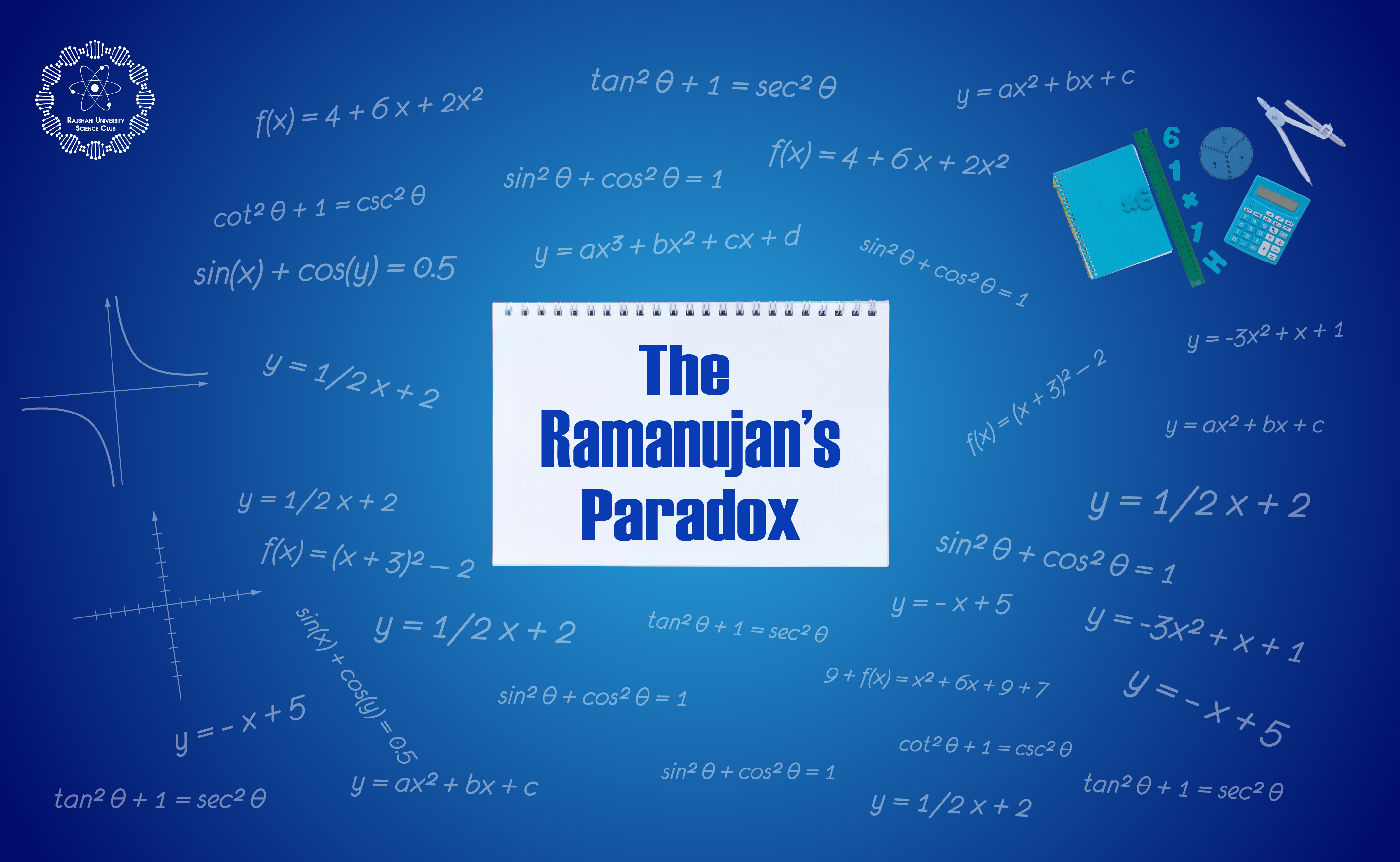Introduction: The “Ramanujan’s Paradox” refers to a curious mathematical result that contradicts common sense. The technique assigns a value to certain divergent infinite series. It was named after the famous Indian mathematician Srinivasa Ramanujan, who discovered it.
Statement: Ramanujan’s Paradox states that if you add all the natural numbers, that is, 1, 2, 3, 4, and so on, all the way to infinity, you will find that it equals -1/12.
Mathematically, 1+2+3+4+5+…∞ = -1/12
Proof: Let P = 1 – 1 + 1 – 1 + 1 – …∞
And Q=1-2+3-4+5-…∞
Now, P = 1 – 1 + 1 – 1 + 1 – … ∞
Or, P = 1 – [1 – 1 + 1 – 1 + 1 – …∞]
Or, P=1-P
Or, 2P=1
∴ P=1/2
Now, P-Q = (1-1) + (-1+2) + (1-3) + (-1+4) + (1-5) +
Or,P-Q =1-2+3-4+5-…∞
Or, P-Q= Q
Or, P=2Q
Or, Q=P/2 = 1/2×1/2
∴ Q = 1/4
Let S = 1 + 2 + 3 + 4 + 5 + … ∞
Now, Q-S = (1-1) + (-2-2) + (3-3) + (-4-4) + (5-5) +
= 0 – 4 + 0 – 8 + 0 – 12 + … ∞
= -4[1 + 2 + 3 + 4 + 5 + … + ∞]
∴ Q-S=-4S
Or, 3S=-Q
Or, S = -Q/3 = -1/4 × 1/3
∴ S = -1/12
Therefore, 1 + 2 + 3 + 4 + 5 + … + ∞ = -1/12.
[Proved]
লেখক: আবিদ হাসান
ক্লাব পজিশন: অর্গানাইজার
ডিপার্টমেন্ট: ফলিত গণিত



0 Comments